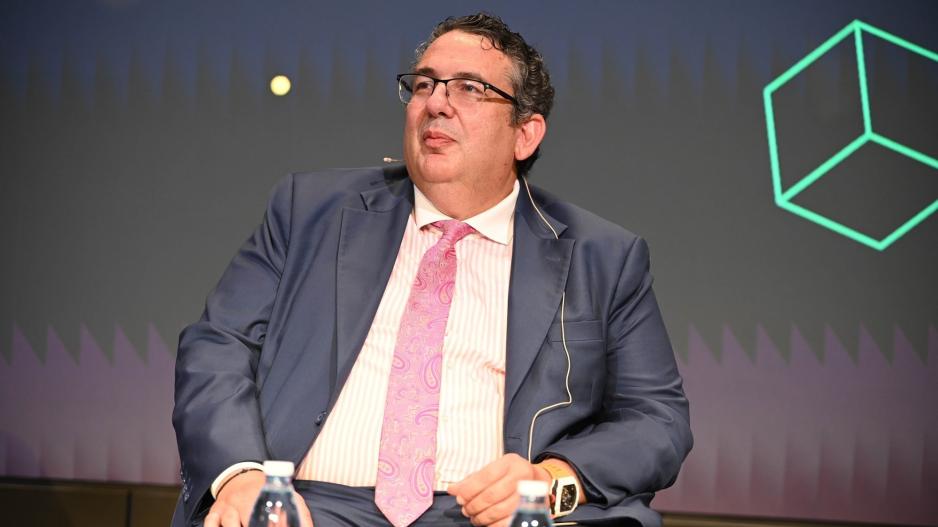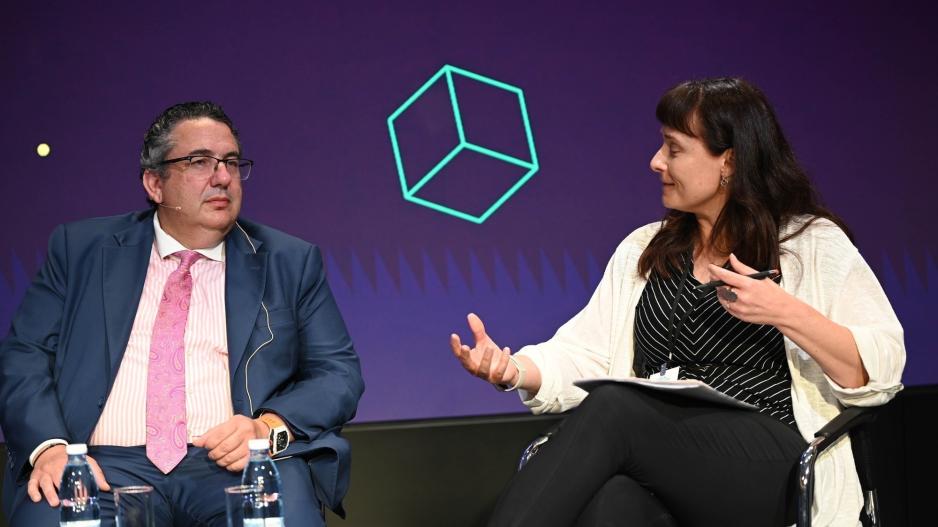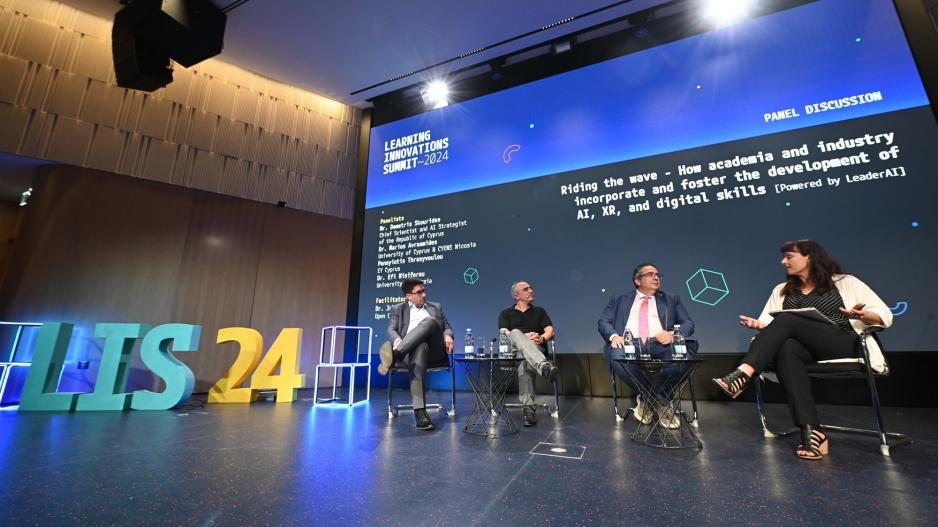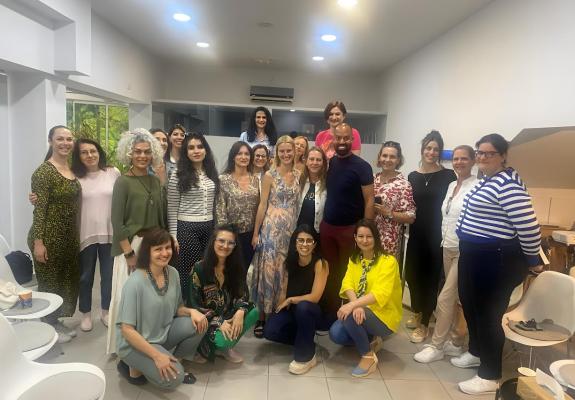Cyprus Chief Scientist On AI’s Role In Revolutionizing Education
The Chief Scientist for Research, Innovation and Technology of the Republic of Cyprus, Demetris Skourides, participated in the Learning Innovation Summit 2024 at the University of Nicosia, focusing on the transformative potential of Artificial Intelligence (AI) in education and its broader implications for the economy.
The event was inaugurated by Dr. Athena Michailidou, Minister of Education, Sport and Youth, and was also attended by Anahit Minassian, Youth Mental Health Technical Support Coordinator at UNICEF, Simona Petkova, Policy Officer in the ‘Digital Education’ Unit at the Directorate-General for Education, Youth, Sport and Culture (DG EAC) of the European Commission, Dr Eleni Mangina, Professor at the School of Computer Science, University College Dublin, Ireland, Dr Fridolin Wild Professor at the Institute of Educational Technology of The Open University, Dr Lynn Fiellin Professor, Biomedical Data Science, The Dartmouth, Panayiotis Thrasyvoulou, Partner in charge of People Consulting, Immigration and the Academy of Learning and Development at EY Cyprus, and Dr. Marios Avraamides, Professor of Cognitive Psychology at the University of Cyprus and CYENS.
In his speech, Skourides introduced the EU AI Act, which lays the foundation for creating trustworthy, human-centric AI solutions with an emphasis on ethics, traceability, and transparency. He stressed that these principles must guide the development, deployment, and use of AI technologies.

He also highlighted several key areas where AI can make a significant impact. In education, AI has the potential to revolutionize the learning process without compromising ethics or safety. It can also support personalized learning, automate administrative tasks, and provide data-driven insights, allowing teachers to keep their focus on inspiring and guiding students. He noted that intelligent tutoring systems can offer personalized, one-on-one support, creating new opportunities for both students and educators.
Turning to developments in Cyprus, Skourides shared the news that over 50 organizations and startups are already leveraging AI across various sectors, including healthcare, energy, shipping, retail, and fintech. Institutions like the Institute of Neurology and Genetics, the Cyprus Institute, Biobank, EnergyIntl, and the Research Centers of Excellence are leading this technological wave. Skourides emphasized that this rapid adoption of AI will create new job opportunities and require a workforce equipped with advanced digital skills. He expressed confidence that AI “superpowers” for every working professional are within reach, driving economic growth and innovation in Cyprus.
Ethical AI development was a key theme in Skourides’ speech. He highlighted Cyprus’ commitment to adhering to the EU AI Act, which aims to foster trustworthy, human-centric AI that respects fundamental rights, safety, and ethical principles. This comprehensive legal framework will ensure that AI systems developed in Cyprus meet the highest standards of accountability and transparency.

Skourides also explored the future of personalized learning, discussing how AI can tailor educational experiences to individual needs. Adaptive learning platforms powered by AI can analyze students’ strengths and weaknesses, providing customized content and pacing to help each student succeed. This technology will enable educators to create learning environments where every student can reach their full potential.
Following his speech, Skourides participated in a panel discussion on the influence of AI in education. The panel examined the benefits of AI, such as its ability to make learning accessible 24/7, support students with learning disabilities, and incorporate gamification elements to keep students engaged and motivated. Skourides highlighted that AI is creating competitive advantages for industries and, in particular, for education, as the focus shifts from memorization to the development of competencies like creative thinking, reasoning, and problem-solving. He emphasized that the future of learning will prioritize applying knowledge in real-time, fostering agility, collaboration, and a deeper understanding of the unknown.
As we prepare future generations to use their knowledge to add value to the economy, the Chief Scientist stressed the importance of focusing on ethics, safety, privacy, and values in education, and called for a collective effort to harness AI’s potential to improve decision-making, leverage predictive analytics, and promote personalized learning experiences.
In conclusion, Skourides reaffirmed his commitment to advancing research and developing AI solutions that empower both learners and educators, while he encouraged educators and industry leaders to collaborate in shaping an educational environment where technology and AI enable individuals to thrive. He also praised the efforts of Dr. Athena Michaelidou, Minister of Education, Sports and Youth, in modernizing Cyprus’ education system and exploring the introduction of AI in learning.






